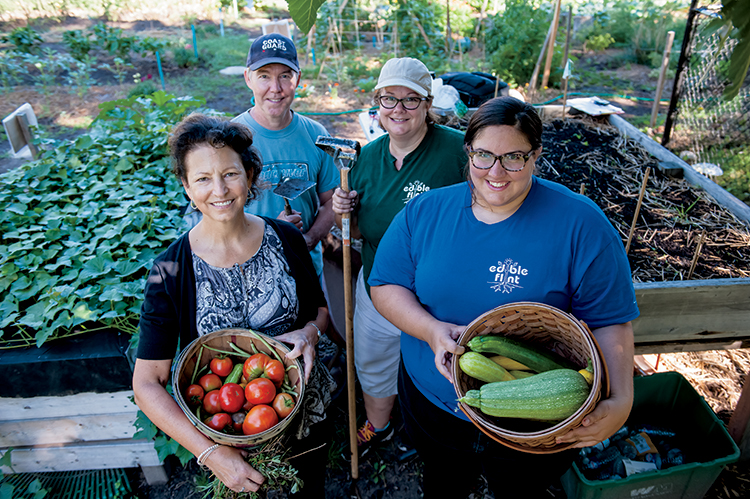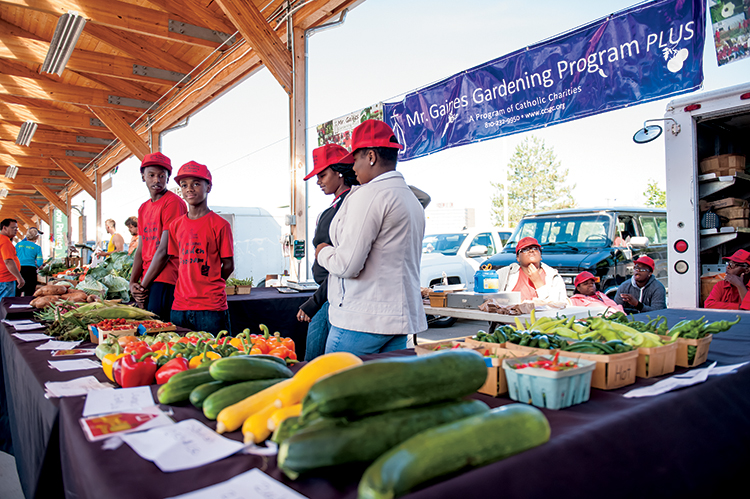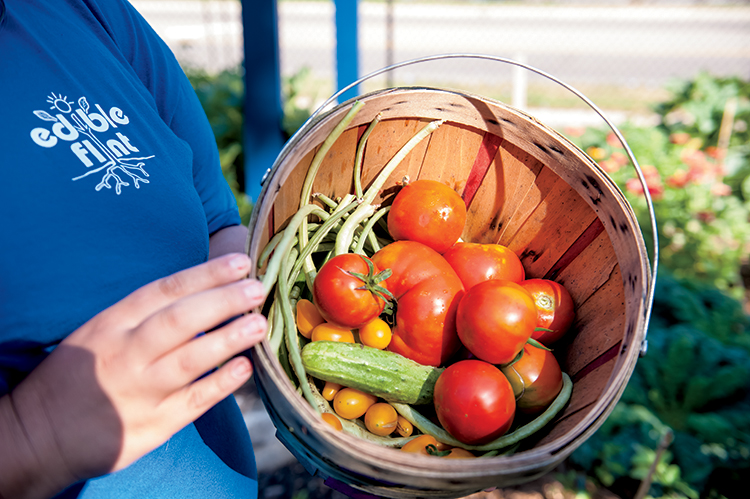Home > Michigan > Michigan Farm to Table > Why Urban Gardens Are a Positive Addition to Michigan Agriculture
Why Urban Gardens Are a Positive Addition to Michigan Agriculture
In partnership with: Michigan Department of Agriculture & Rural Development

Urban gardening has long been embedded in the culture of Flint residents. It’s a community of people who are resilient and determined to maintain access to fresh, healthy food.
Edible Flint was formed in 2009 to support Flint residents in growing and accessing healthy food – a mission that has also aided citizens in reconnecting with the land and each other.
Gaining nonprofit status in 2014 and now operating with a leadership board of 14, Edible Flint continues to serve as a grassroots-led organization providing gardeners with services like soil tilling and testing, compost delivery, and vegetable kits. Perhaps most impressive, however, is that its 2016 demonstration garden produced almost a ton of produce.
Terry McLean, a community food systems educator at Michigan State University Extension, proudly looks back at Edible Flint’s accomplishments in recent years. “We’ve supported 826 food gardens in Flint and 78 of those are community gardens,” she says.![Michigan Agriculture 2017 [INFOGRAPHIC]](https://eadn-wc01-4177395.nxedge.io/wp-content/uploads/2020/05/Screen-Shot-2017-02-23-at-9.01.34-AM-320x257.jpg)
Thanks to grants and new resources, she says, “We took 178 soil samples this past summer [2016], which is almost equivalent to the number we had taken over the previous five years. We’ve also been able to offer a comprehensive, 11-week urban gardener training program every year, plus hands-on workshops in the demonstration garden.”
Another popular educational event held annually is Edible Flint’s Food Garden Tour. “We usually get about 300 people from inside and outside the community and select 15 gardens to be featured on the tour through a nomination process,” McLean says. “Afterward, we have a celebration with good food and entertainment. It’s an ongoing legacy.”
The ninth annual Food Garden Tour is scheduled for July 26, 2017.

Positive Impacts
Since establishing this priceless food gardening network, neighborhoods are finding another big payoff: reduced crime and increased public safety. According to an Edible Flint 2015 in-depth organizational survey, the number one response was that Edible Flint is helping families to be healthier and more engaged in positive change.
“People count on Edible Flint and rely on it,” adds McLean, who sees many participants volunteer to help give back. “It’s really exciting and hopeful.”

Planting Inspiration
The longest-standing community garden organization in the United States, Project Grow in Ann Arbor has provided the community with space, training and inspiration to grow its own fresh, organic food since 1972.
The organization annually facilitates more than 15 individual sites across the community, which provide for more than 350 individual plots. Many gardens are located near public transportation, which helps make organic gardening accessible to everyone, including gardeners with disabilities, senior citizens, children and low-income families.
Project Grow has transformed underdeveloped land for its network of community gardens, turning otherwise wasted plots into a reliable source of healthy food for all.



